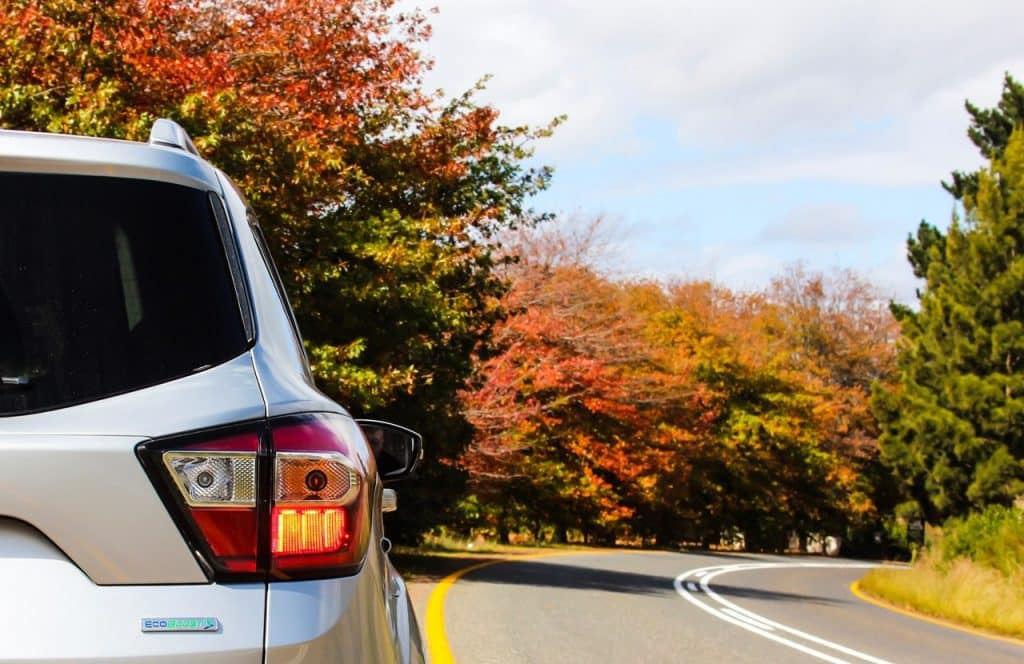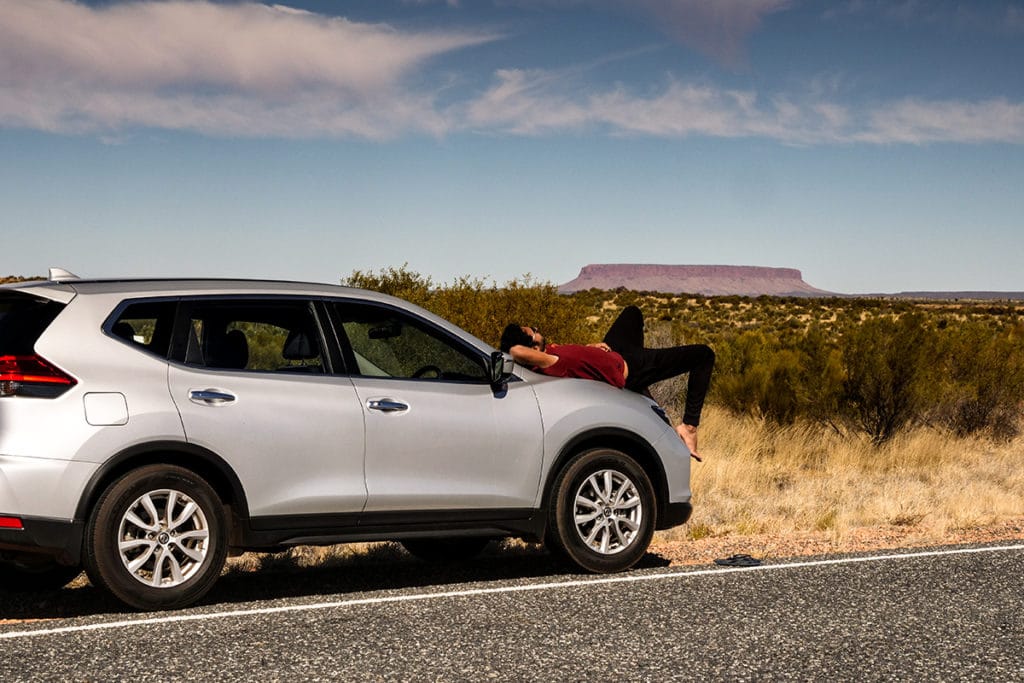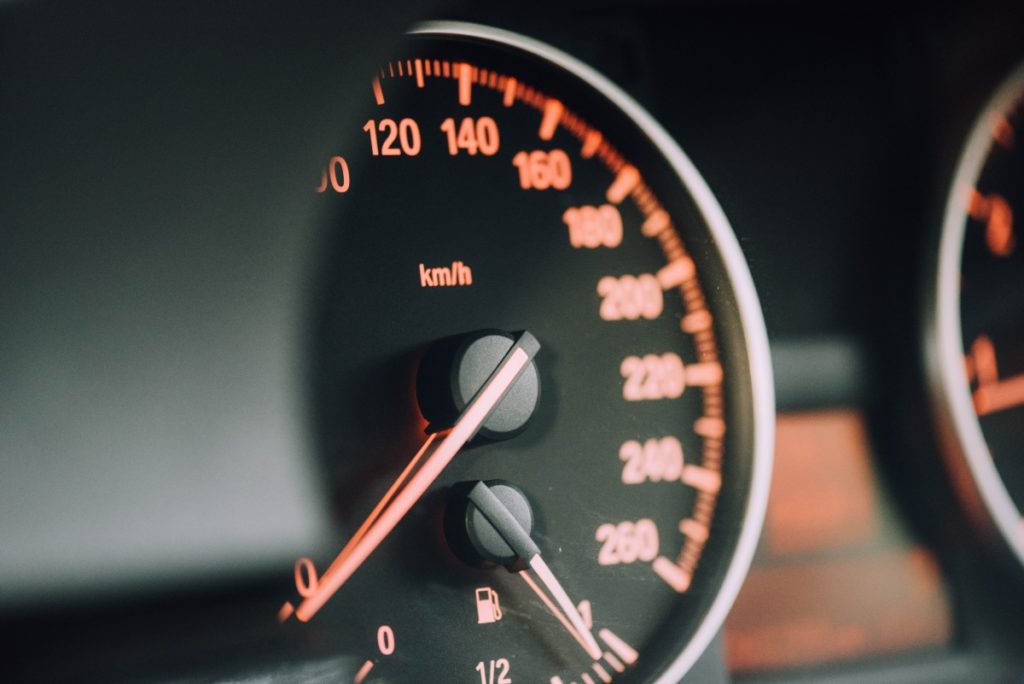Australia, with its sprawling landscapes, iconic coastal routes, and vast outback, is a country that beckons to be explored by road. Renting a vehicle offers the freedom and flexibility to discover its diverse regions at your own pace. Whether you’re planning to cruise along the Great Ocean Road, venture into the heart of the Red Centre, or simply enjoy the urban sights of cities like Sydney and Melbourne, understanding the ins and outs of car rental in Australia is essential. This comprehensive guide covers everything you need to know to make your driving adventure down under as smooth as possible.
Table of Contents
How to rent a cheap car in Australia?
Three options are available to you for your car rental:
- Reserve a vehicle via a rental company’s website
- Go directly to a rental agency (if you are already there)
- Use an online comparator like Airport Rentals to get the best price.
When selecting a rental company, consider factors such as rental costs, vehicle selection, insurance options, and customer reviews. Online comparison tools can be invaluable in finding the best deals and ensuring you choose a company that meets your specific needs.
Tips for a Smooth Rental Experience ans save money
- Book your vehicle in advance
- Avoid “one way” rental (see below)
- Opt for renting agencies located in airports (prices are lower)
- Rent your vehicle for a period of more than 5 or 7 days to get lower rates
- Travel as a group so you can share rental, fuel and repair costs
- If you are traveling with several people, nominate a driver who is at least 21 years old.

Car rental companies in Australia

The main car rental companies in Australia are Avis, Hertz, Europcar, Thrifty and Budget. All of these companies are usually found in city centres (CBD) and near airports. They offer relatively similar services, so price is probably the biggest factor to consider. There are also many smaller players on the market with entry-level offerings. These include, for example: Alpha, East Coast, Apex, Alama, etc.
Requirements to rent a car in Australia
👫 Be at least 19 years old (some companies require you to be over 21)
🚗 Hold a valid driver’s license in English or accompanied by an accredited English translation if in another language. An International Driving Permit (IDP) is recommended for those whose licenses are not in English.
📃 Have an international driving license
💳 Have a credit card (for bond and payment)

How much does a car rental cost in Australia?
Prices differ depending on the agencies, the city you’re renting the car in, the type of vehicle etc. They start at around 50 AUD a day and can go up to more than 250 AUD a day depending on the model, the season and the rental period.
- $40/ day for an Economy Car
- $50/ day for a Medium Car
- $55/ day for a SUV vehicle
- $65/ day for a 5-door car
- $85/ jour for a Sedan car
- $90/ day for a 4WD or a station wagon
- over $100/ day for a premium car.
Renting a car is a lot more expensive in a small town than in a big city, as demand exceeds supply. As an example, renting a car in Byron Bay is much more expensive than in Brisbane.
📅 Departing in July (low season)
🚘 Entry level car
⏱️ 1 week rental period
🏙️ Sydney airport
⌛ Reservation 1 months in advance
🛑 Prices excluding extras and insurance

📅 Departing in December (high season)
🚘 Entry level vehicle
⏱️ 1 week rental period
🏙️ Sydney airport
⌛ Reservation 6 months in advance
🛑 Prices excluding extras and insurance

For a trip during the peak season, you can get a great deal by booking way in advance.
Factors that can affect car rental prices
Extra costs
Many companies charge an extra fee for rentals when the driver is under the age of 21. Some agencies will actually refuse to rent cars to drivers under the age of 21 (sometimes it can be 25). Make sure to check this with the agency before renting.
The rental agency may also ask you to pay extra to rent equipment (GPS type, car seat, etc.).
Mileage
The number of kilometres you can travel with a rental car are not always unlimited. There are two options when renting a car:
- Unlimited Mileage: The price will be the same, whether you drive 100 or 500 kilometres.
- Authorised mileage: You are only allowed to travel a certain number of kilometres during the rental. Additional kilometres traveled will be payable per kilometre. Rates are generally around $0.25 to $0.30/km.

Cancellation fees
If you cancel your rental, the company will keep the deposit you made during your booking process. Sometimes the company also charges an additional penalty if you don’t pick up the car you booked. When it is not the case, you will see the mention ‘Free cancellation’.
Deposit
A deposit is required for any rental. The cost of the deposit depends on the type of car you rent as well as the driver’s age. It is taken out of your credit card and you get a refund when you return the vehicle.
Insurance
When renting a car in Australia, you can choose to take out insurance. This will cover material damage to your vehicle, or that of a third party. Without this insurance, you will have to give a deposit to the rental agency. The amount of this deposit corresponds to your deductible (maximum liability).
The cost of insurance varies depending on the supplier and the type of vehicle chosen (generally between 18 and 40€ per day). Some companies offer cheaper, insurance but with a deductible. So check the amount in your rental agreement.
By taking out private insurance or the one offered in the airportrentals.com comparator, you will pay much less (around €7/day). On the other hand, you’ll have to pay a deposit in advance, which you will get back at the end of the rental period.
It’s also possible that your credit card insurance or your travel insurance will cover the deductible when renting a car abroad. Remember to check your contract to be sure to benefit from this service. Even if you have insurance that covers it, you will still have to pay the deposit to the supplier in advance. Your private insurance will reimburse you for the repair costs but will not pay the deposit for you!
Good to know: in all cases, breakdown assistance is included in your rental (free of charge).
One way car rental
It’s possible to rent a car in one city and return it in another city. In the same way you can with a campervan, you can rent a car in Sydney and return it in Brisbane. You will need to return your vehicle to the agency indicated on your rental agreement.
The price of a one way rental depends on lots of different criteria, mainly on the location where you want to drop off your vehicle. As with a regular car rental, you will be given a date by which you must return the car. You must also provide a deposit which will be returned to you at the agency in your destination city. However, the daily rate increases considerably. We recommend that you compare the cost of deposit in different cities. It might be worth driving an extra hour to get to a more affordable agency.
Pros
Relocation is less expensive than with traditional rental. You will only have to pay for gas.
Cons
The rental period is limited and you have to keep below a certain mileage, so you have less freedom and flexibility in your trip.
Agencies that offer relocation
Most car rental agencies offer a relocation service. You will either find a dedicated page on their website or you can contact them directly to find out more information. Companies that offer relocations include Apollo and Wicked Campers.
Where can I rent a car in Australia?
You can hire a vehicle almost anywhere in Australia. There are usually rental agencies near airports or in the city centre. You can also go through an agency or your hotel to rent a vehicle.
You will find car rental agencies in major cities and regional towns. However, it is easier to find an agency in a big city, and the rates are lower.
Picking Your Vehicle
The right vehicle will depend on your itinerary, the number of passengers, and the type of terrain you plan to tackle. For city tours and short trips, a compact car might be the most economical choice. If you’re venturing into rural areas or planning an extensive road trip, consider a larger sedan or an SUV for added comfort and space. For those aiming to explore rugged terrains or remote locations, a 4WD might be necessary.
By going to the AirportRentals.com website, you can see all the different models of car that are available. You can choose from a wide range of models (Toyota, Hyundai, Nissan, Mercedes, Suzuki, Ford etc…).
In order to find the car that suits you best, you can adjust your search criteria by selecting: the number of seats (2, 4, 8), the type of car (economy, compact, hybrid, premium) and the transmission (manual or automatic). You can also input your price range. The further in advance you book your rental, the more choice you will have when it comes to the model (and therefore you can find a better deal).
A word of advice: when choosing the size of your rental car, remember to take into account the amount of luggage you have. 2 or 4 seater car models often have small trunks.
Pick up and drop off of a vehicle, What to check?
Picking up your car rental
Start by reading the rental agreement carefully, in order to avoid any unpleasant surprises when returning the vehicle. Look for information on any additional charges, for example.
Before leaving the rental lot, inspect the exterior of the vehicle for any existing damage and ensure it’s noted on the rental agreement to avoid disputes later. You can even take some pictures.
Also check if the equipment works well: the air conditioning, the heating, the windscreen wipers, the headlights etc. You should expect a full tank of fuel. Most rental companies operate a full-to-full fuel policy, meaning you’ll need to return the car with a full tank or face additional charges.
Check that the vehicle matches the selected model. It can sometimes happen that the model you booked is no longer available. In this case, a different model (usually an upgrade) will be offered to you.
Find out about the toll system if you are going through major cities as there is no box toll in Australia.
Returning Your Rental Car
Upon returning your rental car, ensure it’s in the same condition as when you picked it up and adheres to the company’s fuel policy. Be mindful of the return time specified in your rental agreement to avoid late fees. A final inspection will be conducted to check for any new damage or discrepancies.
Why should I check my rental car?
The number one reason you should always inspect your rental car, before you drive off is that if you discover something is wrong with the vehicle during your trip, you’ll have difficulty proving that you aren’t to blame. Keep in mind that you must pay the rental agency a deposit, which they can keep to cover the damage.
It’s always easier to solve a problem when you’re still in the garage rather than contacting them later. In Australia and New Zealand in particular, distances between different rental locations are usually long. If you discover there is a problem with the vehicle, the rental company will generally ask you to go to their closest rental location to have the problem solved. This could potentially result in you having to take a big detour, and delaying your trip by several days.
It’s never fun to have to pause your road trip because your vehicle doesn’t work properly. So make sure you take your time to carry out an inspection before hitting the road!
Understanding Australian driving regulations
In Australia, the roads are well maintained, so you should have no problem getting around. Before hitting the road, familiarize yourself with Australia’s driving laws:
- Obey speed limits. On the motorways, the maximum speed is 110km/h, 130 on certain sections of the Stuart Highway. In towns/cities, the speed limit is 50 km/h. In school zones, the speed limit is 40 km/h.
- You cannot use your phone while driving. Careful, in Queensland you can not have in on your body while driving.
- Blood alcohol levels while driving must not exceed 0.05% (i.e. 0.5 grams of alcohol per litre of blood)
- Generally, motorways have no tolls and are free to use. The only exception are for major cities like Sydney, Brisbane and Melbourne.
FAQs
If your licence is in English then no. Otherwise, yes, you’ll need to show your national licence, along with your international licence. If you don’t have an international licence, you can have your licence translated.
You must be at least 19 years old. Some companies require you to be at least 21. Please check this point before booking.
Yes, in general this is not a problem. Only certain roads (for example, unpaved roads) may be off-limits to you. Make sure you check this with the rental company when you pick up the vehicle.
Updated on 03/06/2024

























